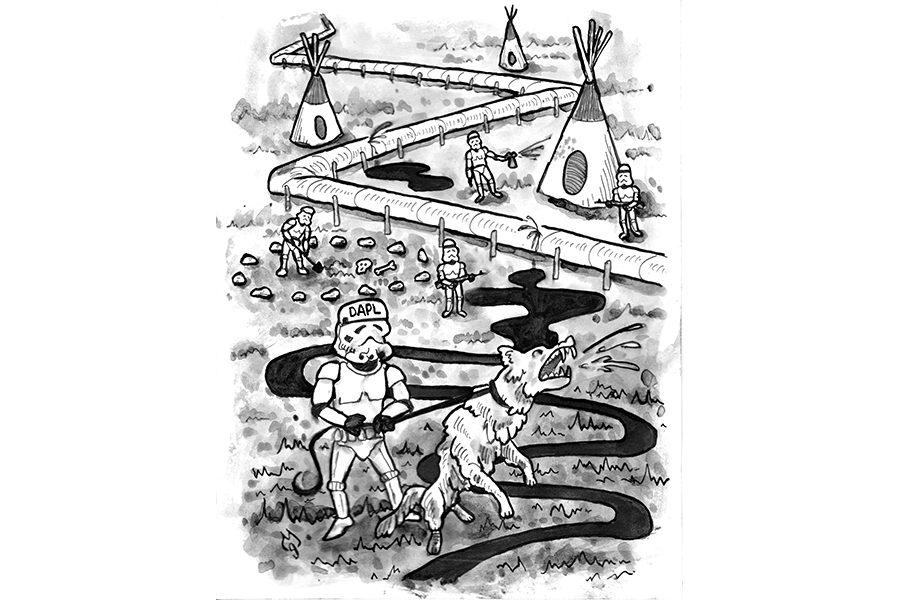The fight against DAPL is not over
December 8, 2016
The Army Corp of Engineers stopped the Dakota Access Pipeline (DAPL) from crossing under Missouri River.
On Dec 4, the U.S. Army’s Assistant Secretary Jo-Ellen Darcy made a statement saying that the easement that would allow Energy Transfer Partners (ETP) to drill under the river will not be granted because of the risk it would pose to the only source of fresh water for the Standing Rock Sioux reservation.
This is a major success for the Standing Rock Sioux Tribe and great cause for celebrations and joy for everyone supporting the Water Protectors.
In a live announcement on The Indigenous Environments Network’s Facebook page Kandi Mossett announced the good news, with a warning. It’s not over yet. She says that by the time that the Obama administration turns over power to the Trump Administration on January 20 Water Protectors, “Must have a full environmental impact statement and that [they] must remain vigilant.”
On Nov 15, The Corps had already made an official statement saying that they would not allow the DAPL to be completed until farther notice, and requested that construction be stopped until that time.
But construction of the pipeline continued up to more than 90 percent after the request by The Corps was made.
In the statement Darcy said, “…that there’s more work to do,” and that The Corps has the responsibility to, “explore alternate routes for the pipeline.” She said in the statement that alternate routes would be best decided with an Environmental Impact Statement, with full public input and analysis.
In other words, the pipeline hasn’t been blocked, but rather the Army will work on figuring out an alternate, less-dangerous route for the pipeline making the “public input” portion of Darcy’s suggestion more important than ever.
Pipelines are an environmentally unsound system of getting crude oil and gas from one part of the U.S. to another. More than 300 major oil and gas leaks happen per year, which is more than once every other day and as we get more pipelines, the number of major spills we have per year is getting bigger.
Any pipeline in any location is dangerous to our natural resources. When they leak the toll is huge on our natural resources and it takes years or even decades for the local wildlife to fully recover from a spill. We can’t afford to keep allowing private companies to devastate public natural recourses and fresh sources of water for their own profit.
ETP was willing to continue building the pipeline because bad publicity and fear of reprimand form the Army Corps wasn’t enough to stop them. Repercussions for failure to adhere to government regulations tends to be a small fine in comparison to how much money ETP will be making off of U.S. oil by exporting and selling it to other countries.
The Water Protectors were the only force that was able to hold off or slow the completion of the pipeline. Through less-than-lethal measures ETP security officers and police from several localities pushed Water back all the way to the Missouri River, but protestors were able to stop them at the water’s edge.
The President-Elect has ties and investments in DAPL. So, it will be more likely for appeals to go through in favor of ETP.
To fight the appeals there will have to be more defenders and supporters digging in their heals and continuing to work on keeping DAPL and any other future pipelines from contaminating Lake Oahe and other sources of fresh water.
This isn’t the end of the war. Don’t stop fighting.
































